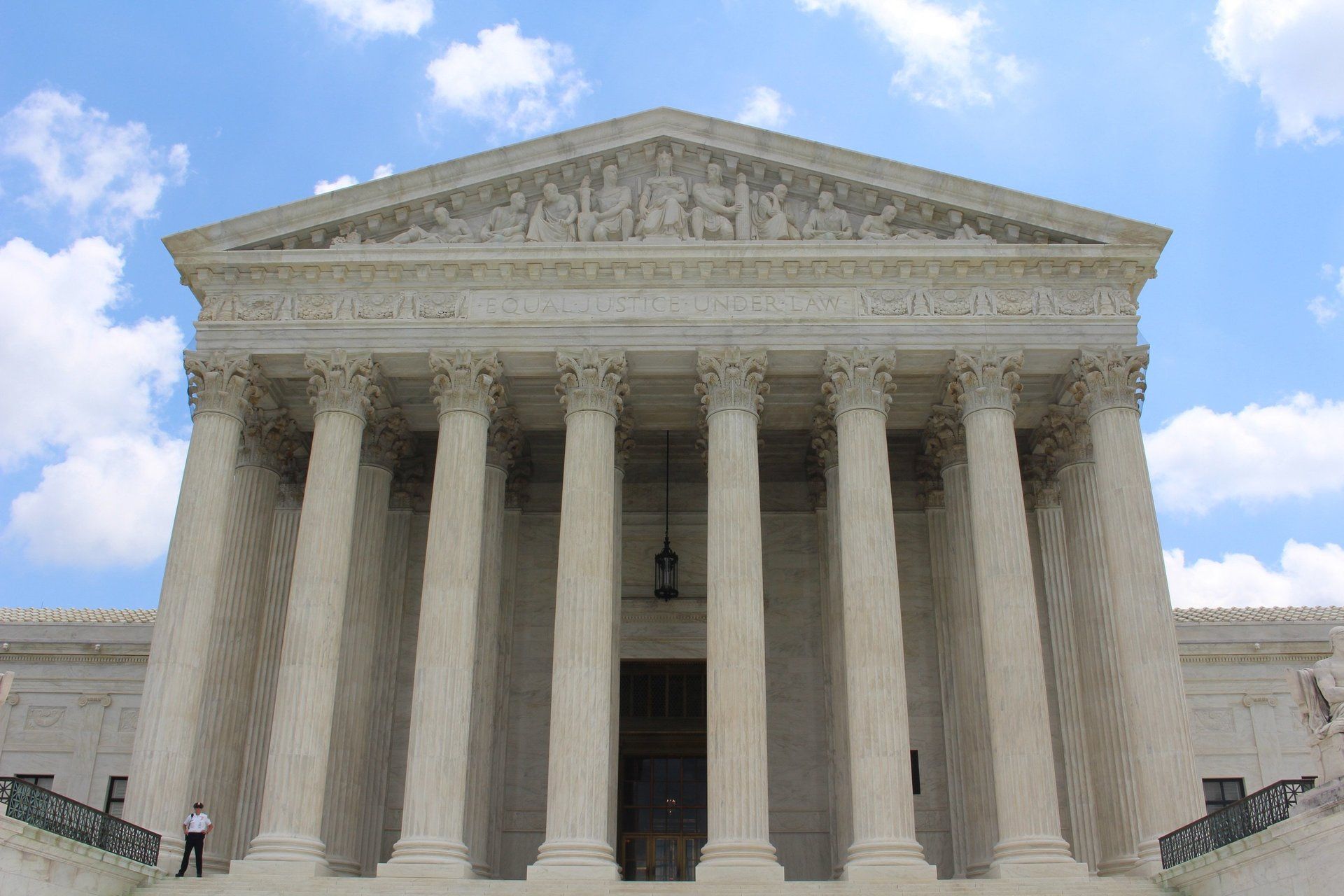By Melissa Krishock
•
June 23, 2020
Voluntary Withdrawal From Workforce and Pension Offset Credit: Nuttall v. WCAB (City of Chester) . In May 2020, the Commonwealth Court affirmed the WCJ’s Decision suspending claimant’s benefits based on a determination that he voluntarily withdrew from the workforce. Claimant was a City of Chester Police Officer since 1989. On February 1, 2010, claimant entered into a voluntary Deferred Retirement Option Plan (DROP), which permits an officer who is otherwise entitled to retire to enter the DROP program, continue to work and be paid by the employer while also receiving pension benefits (which are deposited into a trust account which the officer is then entitled to at the time of his actual retirement). To participate in the DROP program, the officer makes an irrevocable commitment to separate and retire from employment no later than five (5) years after entering DROP. However, the DROP program does not prevent an officer who collects the pension benefits from seeking alternative employment after “retirement” with employer or elsewhere. Thus, claimant entered the DROP program on February 1, 2010 and his DROP separation date was January 31, 2015. On March 27, 2014, claimant suffered a work-related crush injury to his right foot for which he received benefits, including specific loss benefits for the loss of right fifth proximal phalanx. Meanwhile, on January 31, 2015, claimant retired in accordance with the DROP program. The evidence presented included claimant’s testimony that he did not consider himself disabled as a result of the work injury and that he retired not because of injury residuals but because of the planned 2015 retirement. Importantly, Claimant admitted that he was not disabled from all types of work, yet further admitted that he was not looking for work which he could perform. Applying prior precedent, the Court reasoned that an employer may establish an employee’s retirement by presenting evidence of objective facts of the employee’s status “including the claimant’s receipt of a pension, the claimant’s own statements relating to voluntary withdrawal from the workforce, and the claimant’s efforts or non-efforts to seek employment.” Once the employer establishes that the employee has retired, the burden shifts to the employee to show that he is still seeking employment within his limitations or was forced to retire from the workforce as a result of his work-related injury. In finding that Claimant had voluntarily “retired”, the WCJ and the Commonwealth Court relied on Claimant’s admissions that he did not consider himself disabled, was not working, and had not re-applied for or looked for any work within his restrictions after completing the DROP program. Separately, the Court also granted the employer’s petition seeking a pension offset credit based on the 28.7% rate which employer proved it had contributed to the employee’s pension plan. While the WCJ credited the employer’s pension offset evidence, it noted that the Petition was moot by way of the retirement ruling. The Commonwealth Court affirmed. Untimely issued Notice Stopping Temporary Compensation – no conversion of Notice of Temporary Compensation Payable by operation of law: Communication Test Design v. WCAB (Simpson) . In December 2016, Claimant suffered a right eye laceration work injury for which the employer issued a medical-only NTCP. In January 2017, employer issued an amended NTCP and began paying disability benefits. In February 2017, employer issued an NSTC and NCD, denying that Claimant sustained any work injury at all. Claimant subsequently filed claim, reinstatement and penalty petitions, while employer filed a termination petition. Claimant contended that the NTCP should be deemed to have been converted to an NCP on the grounds that employer failed to file the NSTC within five days of stopping payment of temporary compensation. The Commonwealth Court found no evidence of record to support Claimant’s contention concerning the last date of temporary compensation paid, therefore, the Court was unable to discern whether or not the NSTC was filed within five days of the last payment. However, even if the NSTC was untimely, the Court confirmed that Section 406.1 provides no remedy for the failure to timely file the NSTC. In addition, and importantly, the Court held that an NTCP does not automatically convert to an NCP for failure to file an NSTC within five days of stopping payment of temporary compensation so long as the NSTC is filed within 90 days of the NTCP. Utilization Review Organization may decide Reasonableness and Necessity of “Presence” at Long-Term Acute Care Facility : Burgess v. WCAB (Patterson UTI Drilling Co.) . In December 2012, Claimant suffered a severe injury and received compensation pursuant to an NCP. Since December 2014, Claimant had resided at a long-term acute care (“LTAC”) facility. In August 2016, employer filed a request with the Bureau seeking a UR determination regarding the reasonableness and necessity of the Claimant’s continued “presence” at the LTAC. The Bureau rejected the UR request on the basis that the matter to be reviewed was not a healthcare service, and that determining where the healthcare service is being provided cannot be determined by a reviewer. The employer made a second request which the Bureau rejected on the same basis. The employer then filed a separate UR request, now seeking review of the reasonableness and necessity of the treatment actually rendered by the providers at the LTAC. In December 2016, the URO issued a UR determination concluding that the reviewed treatment was indeed reasonable and necessary. The employer then filed a petition for review of UR determination, and during hearings clarified that it was not actually challenging the reasonableness or necessity of the medical treatment, but rather the Claimant’s “residency” at the LTAC. Based on the evidence presented, the WCJ determined that Claimant’s continued stay at the LTAC facility was not reasonable or necessary, and that Claimant instead should be moved to a skilled nursing facility. Claimant appealed. On appeal, Claimant argued the WCJ lacked jurisdiction to determine whether his care should be transferred to a skilled nursing facility because that determination was beyond the scope of permissible UR consideration and employer should instead have raised the issue in a petition to review medical treatment. The employer responded that the issue of whether treatment must continue at an LTAC facility was inherently related to the treatment under review. The Commonwealth Court ruled that nothing in the UR regulations prohibit a URO from reviewing whether the Claimant’s care at the LTAC facility was reasonable and necessary, and that the Bureau had twice erroneously rejected the employer’s UR requests. The Court found that the employer’s UR request regarding the reasonableness and necessity of Claimant’s continued stay at the LTAC facility were not prohibited by Reg. 127.406(b) and should have been referred by the Bureau for a UR Determination. Claimant Admission Established Withdrawal From the Workforce : Phillips Respironics v. WCAB (Mika) (Reported Opinion). On June 1, 2015, Claimant sustained a left shoulder work injury and was paid benefits pursuant to a medical-only NCP. Claimant had continued to work on a modified duty basis for about two months until resigning on August 3, 2015 for non-injury related reasons. On March 17, 2016, Claimant filed a Claim Petition seeking indemnity benefits as of August 1, 2015. At an early hearing on May 6, 2016, Claimant testified he was looking for work within his capacities. However, at later hearings on September 1 and November 3, 2017, Claimant, on cross-examination, gave testimony admitting that he was no longer looking for such work, and did not testify that he was forced out of the entire work force by his shoulder problems. He further admitted that he could go back to work at a venue like McDonalds at minimum wage, but such a move would not make financial sense. He indicated that he and his wife decided that she would go to work, and that he would turn to being a stay-at-home dad. On this basis, the WCJ found that Claimant stopped looking for work in part due to his shoulder condition and in part due to the economics of his personal situation. Thus, the WCJ suspended Claimant’s benefits as of September 1, 2017. The Commonwealth Court affirmed, holding that: “an employer is not required to show that a Claimant does not intend to continue to work. . . . rather, an employer only has to prove that, although Claimant may be forced to retire from his time of injury job due to his work-related injury, he was not disabled from other types of work.” Thus, here, employer was not required to present evidence of available work within Claimant’s restrictions or expert testimony regarding Claimant’s earning power because Claimant acknowledged there was work he could do but he chose not to pursue it due to personal financial considerations. Employer Barred from Retroactive Pension Credit where it delayed 14 months to Make Pension Payment Inquiry : Consol Pa. Coal Co. v. WCAB (Johnson) (Unreported Opinion). Claimant was a coal miner who suffered a work injury, and whose claim petition was granted in 2015. Soon thereafter, he also became entitled to a pension. Approximately 14 months after the WCJ award, the employer first served an LIBC-756 form on Claimant inquiring whether Claimant had received any pension payments, to which Claimant replied in the affirmative. Employer then applied a retroactive pension credit back to the date of its first payment of compensation in 2015. Claimant then filed Review and Penalty petitions to challenge the same. The WCJ ruled in Claimant’s favor and disallowed the employer’s retroactive credit, but denied the Claimant’s Penalty Petition on the grounds that this area of law is subject to some ambiguity. Notably, the Court ruled that while an employer may take a retroactive credit, to do so it must show that it has acted with due diligence in making that effort. Here, the Court found that 14 months was too long, and prejudice was assumed. Employer Rebutted Presumption that Claimant, who was driving a truck with the employer’s name on the side, was an “employee” by showing Employer’s lack of sufficient control over the details of the work: Carroll v. WCAB (Nealson Trucking, Inc.) (Unreported Opinion). Claimant was a police officer for a local municipality. However, he often performed “side jobs” for a small, uninsured rubbish company, driving its garbage truck. In August 2016, Claimant was in the midst of such garbage removal work when he was injured as a result of being struck in the head by a hook on truck. In workers’ compensation litigation which followed, Claimant testified that he expected to be paid for the work, while his employer stated that Claimant had “volunteered” for the work while employer was taking time off from the business to spread his late wife’s ashes in North Carolina. The WCJ and the Court acknowledged that, since Claimant was driving a truck with the employer’s name on the side, there was a presumption that he was an employee. However, the WCJ and Court determined that employer had rebutted the presumption by showing that employer had not exercised sufficient control over the details of Claimant’s work, particularly where employer was “several states away while Claimant was conducting his activities….” Thus, Claimant was deemed an independent contractor and the claim was denied. Expert Testimony Rendered Incompetent Only Where Based “Solely” on Inaccurate/False Information: Pittsburg East Nissan v. WCAB (Rush) . The Commonwealth Court rejected employer’s appeal and contention that the WCJ capriciously disregarded evidence by at once suspending claimant’s benefits and then 3 weeks later reinstating the benefits. Claimant worked as a car sales person for employer, and had a pre-existing neck condition which required a one level fusion in 2006. In March 2015, claimant fell on ice at work and was paid compensation per an NCP that recognized a concussion injury. Later, claimant claimed consequential injuries that the carrier recognized in the form of cervical myopathy necessitating a fusion at two additional levels. In early 2017, Claimant eventually returned to work. However, on June 27, 2017, she was fired “for cause” for misconduct. Claimant thereafter sought reinstatement. Claimant testified and repeatedly admitted that, but for her firing (and her surgeon keeping her out of work), she would still be working and had liked her job. The surgeon opined unequivocally that by July 19, 2017, claimant’s neck condition was deteriorating and that she was totally disabled. The WCJ found that claimant had been fired for cause which authorized suspension of compensation benefits from the date of firing until the date the surgeon opined that claimant was again totally disabled. The WCJ rejected the employer’s evidence from the IME physician, as well as from claimant’s repeated cross-examination admitting that, but for the firing, she would still be working. The WCJ relied on the fact that in that claimant was deferring to her surgeon on the issue of workability, and it was the surgeon’s credible opinion that she was completely disabled from work. The Court emphasized that the surgeon did not recant, and maintained his opinion that claimant was totally disabled as of July 19, 2017, despite what claimant may have admitted to the contrary. The Court rejected the employer’s argument that the claimant’s surgeon’s opinion was incompetent on this basis stating, “a medical expert’s opinion is not rendered incompetent unless it is solely based on inaccurate or false information.” In essence, the opinion of a treating physician can trump the lay testimony or admissions of the claimant. Multiple Termination Petitions not Barred by Collateral Estoppel Absent a Prior Determination that Claimant’s Disability was Permanent : MacTough v. WCAB (City of Phila.) . Claimant sustained a neck injury in 1995. He returned to work, but by 2010 had an increase in disabling neck pain. The claimant successfully established the increased neck pain was caused by a work-related aggravation of his degenerative changes in his neck and constituted a new injury in 2011. In 2015, employer filed a termination petition, which was denied on the grounds that claimant had not recovered from the 2011 work injury. Two years later, employer again filed a termination petition which this time was granted. The WCJ found claimant’s ongoing problems at that stage were from degenerative conditions from “the ordinary process of aging”. Claimant appealed. The Court rejected Plaintiff’s contention that the employer should be precluded from multiple termination petitions via collateral estoppel, holding that the prior WCJ decision did not provide that the aggravated degenerative condition was “permanent”. Multiple Employer Frivolous Appeals Warrant Award of Attorney’s Fees : Aqua Pennsylvania, Inc. v. WCAB (McGonigle) . Claimant worked for employer performing heavy labor, suffered an injury and was awarded TTD. The injury included a herniated disc, aggravation of degenerative disc and joint disease, and a low back strain/sprain from cumulative trauma. The WCJ had granted compensation for a closed period (with suspension) because claimant had returned to work during the pendency of the claim petition. A year later, claimant went back off work complaining of a worsening condition. Claimant ultimately filed for reinstatement of benefits, and also appealed from a URO determination that his treatment was no longer reasonable and necessary. Employer filed a cross-petition to terminate. The WCJ credited claimant and his physician on all counts and granted a reinstatement to TTD. Employer appealed on four grounds, but the Court rejected all of the employer’s contentions as frivolous as they were all attempts essentially seeking to have the Court re-assess the credibility findings made by the WCJ. In other words, the Court deemed that there was no meaningful basis to appeal on any ground, regardless of how the employer framed the arguments. Of particular note, the Court, in rejecting one of employer’s argument surrounding the fact that claimant’s doctor released him to full duty work, pointed out that ability to return to work at full duty is not equivalent to full recovery. Finally, the Court outright rejected employer’s contention that the claimant’s treating physician could not testify with regard to the reasonableness and necessity of his own treatment because he had a financial interest of the outcome of the URO petition. The Court remanded the matter to the WCJ for a determination of the value of fees to award in connection with the frivolous appeal. Contact the Workers' Compensation Attorneys at Bingaman Hess to discuss these cases.



